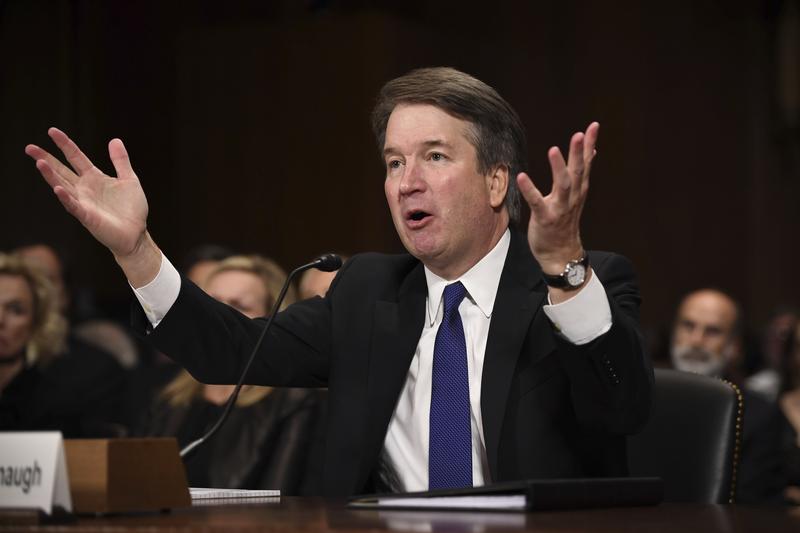
New York Gov. Andrew Cuomo and the state's Republican Party Chairman Edward Cox publicly clashed Thursday morning over their stances on whether the U.S. Senate should confirm Supreme Court nominee Brett Kavanaugh.
At a breakfast hosted by the Association for a Better New York, the governor said he opposes Kavanaugh's confirmation, saying he appeared angry and partisan during his hearing in front of the Senate Judiciary Committee. But then Cuomo pivoted to point fingers at Republicans in Washington D.C. and New York, ascribing a kind of political ambivalence to them.
"You ask the New York Republicans where they stand, they won't say they oppose Kavanaugh," said Cuomo. "They're all Trump mini-me's and they're all in lines behind Trump."
At that point, state Republican Party Chairman Ed Cox shouted from near the back of the room.
"You're for him?" Cuomo interpreted. "Chairman Cox is for Kavanaugh. My point. 'Mini-me' Cox."
After the event ended, Cox confirmed to WNYC that he had spoken up in support of Kavanaugh.
"He is fully qualified to be on the Supreme Court, and his testimony was very credible," said Cox. The testimony of Dr. Christine Blasey Ford, Cox said, was "not supported by facts."
The confrontation comes days after New York Democrats unleashed a digital ad campaign calling for Republicans running for office in November to publicly announce their position on Kavanaugh's confirmation.
While only Senators can vote on whether or not to confirm Kavanaugh to the nation's highest court, polling suggests the intensity of the saga has motivated voters identified with both major parties to turn out for the November midterms.
According to a new NPR-Marist poll, Republicans have closed the 10 point gap with Democrats regarding how important they think the midterm elections are. In July, 78 percent of Democrats thought the upcoming elections were 'very important,' compared with 68 percent of Republicans. As of October, those numbers are nearly tied at 80 and 82 percent.
